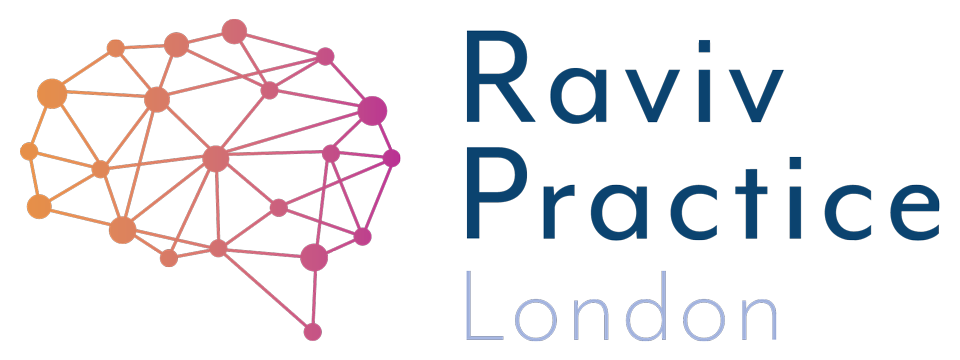Power up your amazing ADHD brain with Habit Change!
Power up your amazing ADHD brain with Habit Change!
Teaching those with ADHD and poor executive functioning skills is a challenge. We find parents of children with ADHD often have traits of ADHD themselves. These parents find it frustrating when their child loses or forgets parts of their uniform or other things at school. They pull their hair out with morning routines. They feel the problem lies with their child and ADHD, but when they look closely, they too display the same sorts of behaviour: being late for meetings, unable to wrap up work, forgetting to pay bills, and so on.
Raviv Practice London specializes in non-pharmaceutical solutions to these issues, such as very effective evidence-based programmes like Cogmed. We have found that most adults are a lot less interested in a diagnosis than they are in getting help and guidance on everyday things like making sure the fridge is full of food and the laundry is taken care of weekly. Some may call them ' learning new processes'; others may call them 'life hacks.' But regardless of their name, who teaches you this sort of stuff?
The point is nobody teaches us to do things regularly - we get prompted to do them by events. You’ve run out of shampoo? You are prompted to go and buy some more. Noticed that your neighbors are taking their wheely bins out on Thursday evening? Must be bin day tomorrow, and you do the same. One thing leads to another.
At some point, if we are savvy, we see the pattern: "Oh, it is Thursday. Let me take the bin out.” or “Oh, the shampoo is nearly empty. I’ll buy an extra one so I am not caught out." These are the conversations we have with ourselves when we start living independently. If, on the other hand, our parents were super-organised, we would naturally model our behaviour on theirs. We would know what to do with all our daily background stuff.
Most of us naturally fall into patterns of behaviour that allow us to do things throughout our lives. But what if there was no parental model to follow? What if you, as an adult, had no role model, or your ADHD was so bad that you ignored all the tricks and shortcuts taught by your parents?
“Habit change works! It can be hardwired into your brain to behave differently. Boiled down to its basics, it tells us to act as we would ideally like to behave”
Self-help books are a great place to start…
In 2012, Charles Duhigg wrote The Power of Habit. It was an instant best seller. Charles Duhigg was able to dissect human behaviour in a fascinating way. As a therapist who works with ADHD children, I saw this as means to bypass the need to simply ‘remember stuff’. After that, I was hooked on Habit Change gurus!
A few years later, James Clear wrote Atomic Habit. He helped me understand how the ADHD brain can turn the ' I can't be bothered to do it now' mentality into one that is more accountable and gets things done regardless of how tired or fed up you might be. Habit change works! It can be hardwired into your brain to behave differently. Boiled down to its basics, it tells us to act as we would ideally like to behave. Since reading both books, I have managed to do things that seemed impossible before. Below are a few from my list:
Wake up daily at 5.30am (seven days a week)
Make sure the shopping is ordered every Thursday (no excuses!)
A seven-week rota for odd jobs around the home
Not forget to return my library books
As I became an advocate for changing behaviour, I wanted to delve into the science of habit change, and I was grateful for Dr BJ Fogg's book Tiny Habits. He provided the science and practical guidance to make this a success for others.
…but they don’t have all the answers
Self-help books are a great source of inspiration to help us all move our lives in the direction we want, and it is okay if you follow through with the advice given. Atomic Habits has sold over 7 million copies worldwide. I have recommended it to countless parents who needed the nudge.
However, you might find you can only achieve so much by reading them. Making these changes in your life is easier said than done and, of course, everybody is different.
“Raviv Practice London had a flood of parents who suspected their child had symptoms of ADHD. Many of these same parents also revealed that they too were struggling with their work-life balance.”
Fast forward to the lockdown
When we went into the national lockdown in 2020, Raviv Practice London had a flood of parents who suspected their child had symptoms of ADHD, with many parents revealing that they too were struggling with their work-life balance.
With teens sometimes reluctant to read and many parents simply not having the time to read self-help books - action was required and so we created our new program which offered adults and teenagers a way to get their daily fix of habit change drip fed in a manageable way.
The results were so successful that we’ve decided to run the program again. Spaces are limited, so, if you’re interested in our exclusive 12-week Teens to Adults Habit Change program, please join our waitlist.
Further reading:
Dyslexia? Dyspraxia? ADHD? ASD? Speech & Language? Developmental Delay? Anxiety?
Is every school day a struggle? As a parent, you may feel exhausted and on this journey alone. Each year you see the gap getting wider. You need to do something - change the approach, help your child learn for themselves, find a way to turn this around - to help while you can - do this NOW. the first step is free.
About the Author
Usha Patel is a Neurocognitive Therapist and Director at Raviv Practice London. Parents searching to help their suspected/neurodiverse child can get evidence-based solutions with results in as little as 8 weeks. Those in search of jargon-free help can get started straight away.




